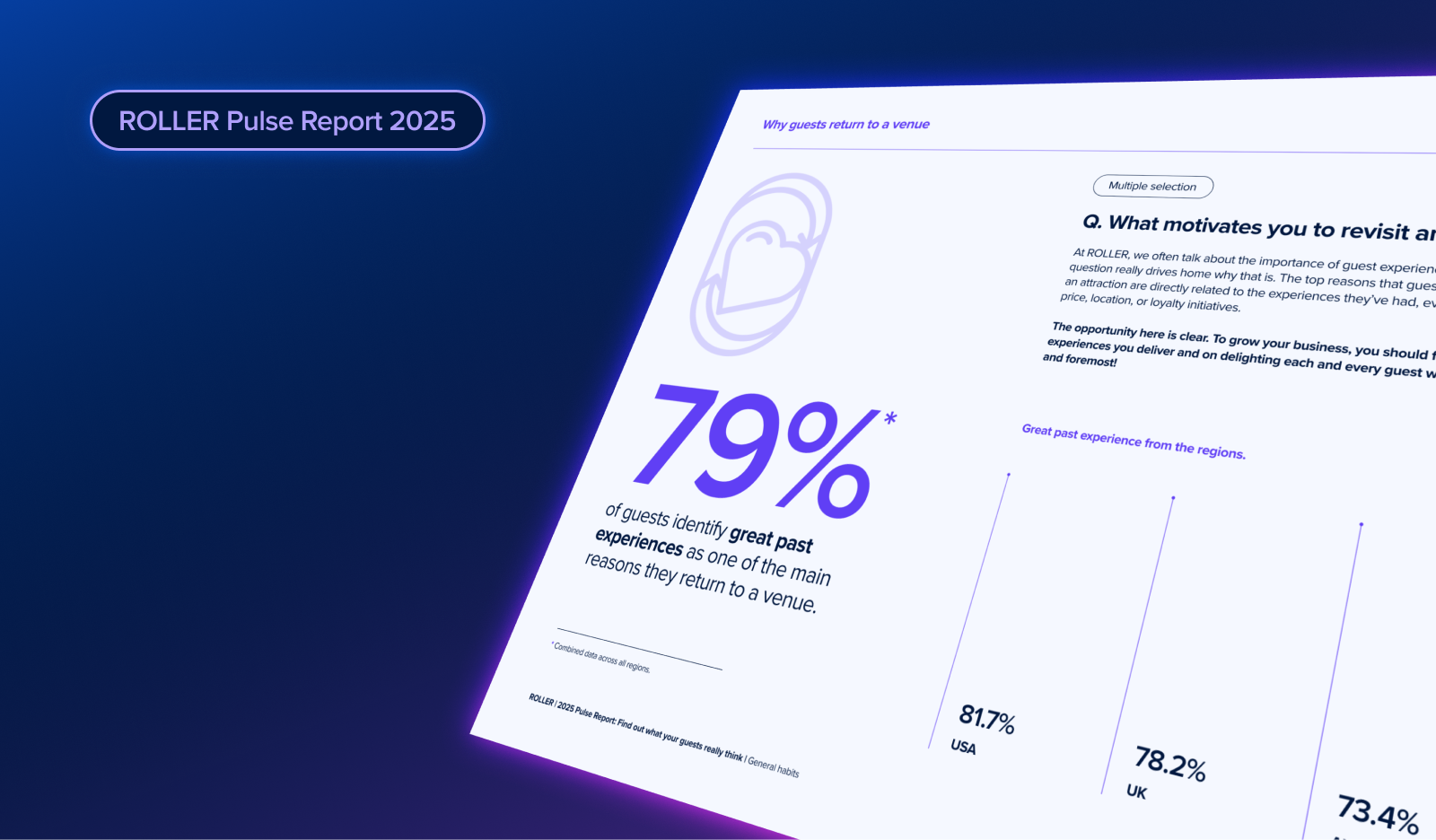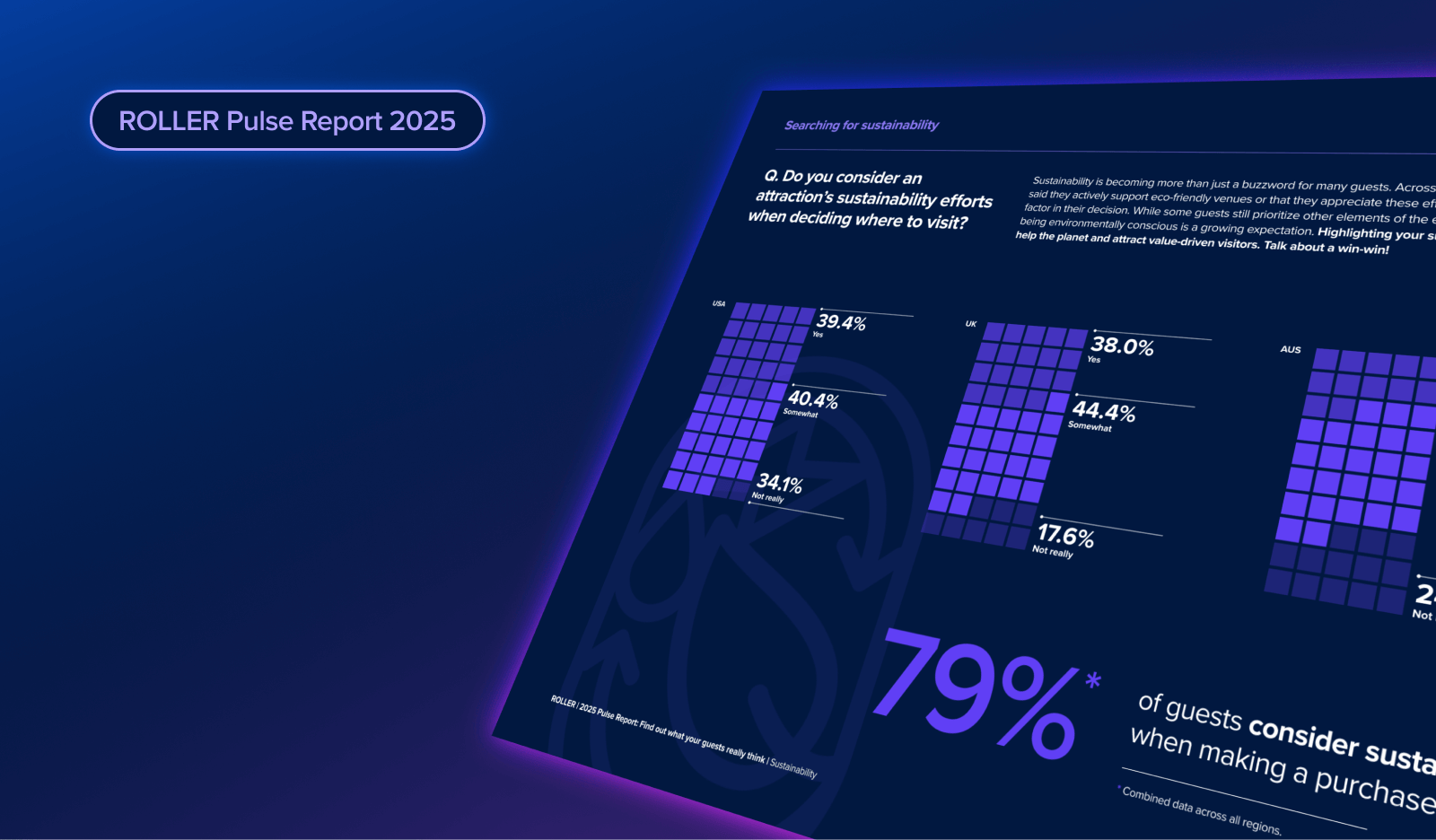A Guide to Local Partnerships for Small Entertainment Businesses

In an era where small entertainment businesses face intense competition, the key to not just surviving but thriving lies in the heart of partnerships and the local community. Building robust local partnerships offers a beacon of growth, support, and mutual benefit.
This guide takes you through the journey of leveraging partnerships, offering practical steps to forge lasting relationships that enhance both your business and the local community.
Why community matters
Small entertainment businesses—such as mini-golf venues, trampoline parks, or family entertainment centers —serve as recreational hubs within their communities. They offer friends and families a space to bond, create memories, and celebrate birthdays. Their success, however, pivots on more than just the uniqueness of their offerings; it's deeply rooted in the strength of their community engagement.
Identifying and nurturing local partnerships stands as the cornerstone of a thriving entertainment business. Whether you’re looking to uncover potential collaborations with other local businesses, schools, or non-profits – it’s important to align with partners who share your values to establish a solid foundation for success.
Finding the right partnerships
Establishing community relationships isn’t always a “build it, and they will come” approach. You should consider exploring methods to map your community and identify potential partners who can amplify your reach. Here are some ways to find the right partnerships:
- Engage in local business networking events.
- Participate in online and physical forums.
- Leverage local business associations.
- Find community business groups on Facebook.
- Search on LinkedIn for businesses in your area.
- Identify local businesses and organizations with a customer base that overlaps with yours.
- Look for partners that complement your services rather than compete with them.
- Consider local schools, sports clubs, and community centers that share your target demographic.
A proactive approach not only broadens your network but also opens doors to innovative collaboration possibilities.
Your blueprint for creating win-win partnerships
The essence of fruitful partnerships lies in their ability to offer reciprocal value. To build the ideal pairing that offers both parties strong benefits, you need to establish a blueprint for approaching negotiations. When you approach a potential partner, use a framework that consists of the following:
Prepare your value proposition
- Clearly define what makes your entertainment business unique and valuable to a partner.
- Highlight specific benefits your business can offer, such as increased foot traffic, shared marketing efforts, or access to a new customer segment.
- Tailor your value proposition to address the specific needs and goals of each potential partner.
Understand your potential partner's objectives
- Research your potential partner's business model, target audience, and current marketing initiatives.
- Approach each negotiation with a clear understanding of what your partner aims to achieve from the collaboration.
- Be prepared to ask insightful questions that uncover deeper objectives and concerns.
Propose a clear framework for collaboration
- Suggest specific, actionable ways your businesses can work together, such as event co-hosting, joint promotions, or cross-selling opportunities.
- Outline how each action can benefit both parties, ensuring the proposal is balanced and mutually advantageous.
- Provide examples or case studies of similar successful partnerships, if available.
Negotiation and flexibility
- Enter negotiations with a flexible mindset, ready to adapt your proposal based on feedback.
- Be open to creative solutions that might better align with both parties' objectives.
- Prepare to negotiate terms that are fair and equitable, ensuring both parties feel valued and excited about the partnership.
Establishing metrics for success
- Agree on clear metrics or KPIs to measure the success of the partnership.
- Set up regular check-ins or reviews to assess the partnership's performance against these metrics.
- Be willing to adjust the collaboration based on performance data and feedback from both sides.
Formalizing the agreement
- Once a mutual understanding is reached, draft a formal agreement that outlines the terms of the partnership.
- Include details on roles, responsibilities, financial arrangements, duration of the partnership, and any other pertinent details.
- Ensure both parties review and agree to the terms before proceeding.
Ongoing collaboration
- Establish a clear line of communication between both parties for ongoing collaboration and troubleshooting.
- Plan joint marketing efforts, events, or initiatives well in advance, with roles and expectations clearly defined.
- Celebrate successes together and learn from any challenges to strengthen the partnership over time.
Partnership activity ideas
Joint events
When local businesses collaborate on an event, the key to success lies in having open lines of communication and aligning on common goals. Imagine planning a local festival with other businesses and hosting it at your entertainment venue—it's not just about what each business gets out of it but how the event can uplift the entire community. The magic happens when everyone's ideas and resources come together, leading to an event that's more diverse, engaging, and successful than anything one business could do alone.
The benefit: A well-executed event puts you on the map, draws in crowds, and fosters a sense of community pride that's priceless.
Mutual promotion
When businesses unite for mutual promotion, it's like doubling your marketing power without doubling your budget. By harnessing the strength of digital marketing, social media, and traditional channels, you can create a buzz that's impossible to ignore.
Whether it's a co-hosted webinar, shared social media posts, or joint discounts, the goal is to create a win-win situation where everyone involved gets to shine a little brighter. This strategy not only broadens your reach but also introduces your business to audiences you might not have tapped into yet.
The benefit: Joint promotion gets more eyes on your brand and fosters a stronger, more connected local business community.
Read more: How to Leverage Data for Marketing
Sponsorships
Sponsorships are about finding partners who share your vision and can elevate your brand to new heights with exciting placements. Think of sponsorships as matching your brand with an institution that cares about the same things you do—like a soft play center sponsoring a pee-wee soccer team or a local college sponsoring an interactive educational attraction. By including sponsorships in your venue or by sponsoring something externally, you’re getting more attention for your brand and cementing ties in the community.
The benefit: Sponsorships give both parties the opportunity to showcase their commitment to the community and their partners, enhancing their brands in the process.
Cross-selling
Cross-selling is where creativity meets strategy. It's about combining forces with other businesses to promote each other’s offerings in unique and engaging ways. From featuring each other's products in your stores to co-creating exclusive offers, the possibilities are endless. The beauty of cross-selling is that it's a shared effort with shared rewards, helping you reach a wider audience while building strong business relationships.
The benefit: Cross-sells will help you achieve a more dynamic, visible presence in your community, attracting new customers and strengthening ties with existing ones.
Success stories
If you’re looking for some inspiration, we have you covered. Here’s how some leading entertainment businesses have handled partnerships.
Blackpool Pleasure Beach and Nickelodeon Land
This partnership demonstrated the power of licensing, where the use of popular Nickelodeon characters like SpongeBob significantly boosted the park's merchandise sales and overall footfall, showcasing the strength of branded experiences over individual attractions.
How to replicate it on a smaller scale: Think about IP and the ways that your business can leverage ideas owned by local businesses in your attractions. Look to local sports teams, schools, colleges, and theatres, exploring the co-branding opportunities in those areas.
Aramark and local restaurants collaboration
Aramark partnered with local restaurants to enhance the food offerings at NBA and NHL venues, introducing hometown flavors and new dining concepts. This includes partnerships with restaurants like Bunz Handcrafted Burgers and Two Bros BBQ & Shuck Shack, offering fans a diverse range of culinary options.
How to replicate it on a smaller scale: Hit up local restaurants, coffee roasters, bakeries, breweries, and food trucks to stock their wares, or even have them set up a pop-up eatery in your venue. If you use mobile food and beverage technology, include their local stories and branding in your item descriptions.
Starbucks and Barnes & Noble
Starbucks is partnered with Barnes & Noble to operate cafes within the bookstore chain. This collaboration enhances the customer experience by allowing shoppers to enjoy high-quality coffee while browsing books, benefiting both brands through increased foot traffic and sales.
How to replicate it on a smaller scale: Look at cross-sell opportunities and ways to partner with local businesses to enhance both of your offerings. Books and coffee are a no-brainer, but what about collaborating with businesses that make toys, art, gifts, or clothing? Last-minute presents from a pop-up gift shop could be a game changer for your small entertainment business!
Partner up
Now that you have the blueprints and some inspiration, it’s time to go out there and start building lasting relationships! Creating partnerships that benefit both you and other local institutions is one of the true joys of operating a small entertainment business and can set you up for success in the future.
Related articles

.png)
What the 2025 Pulse Report Reveals About Guest Booking Behavior at Attractions

2025 Pulse Report: How Sustainability Is Shaping Guest Expectations
Enhance your guest experience
Get free education, tips and inspiration to help you run a successful venue.